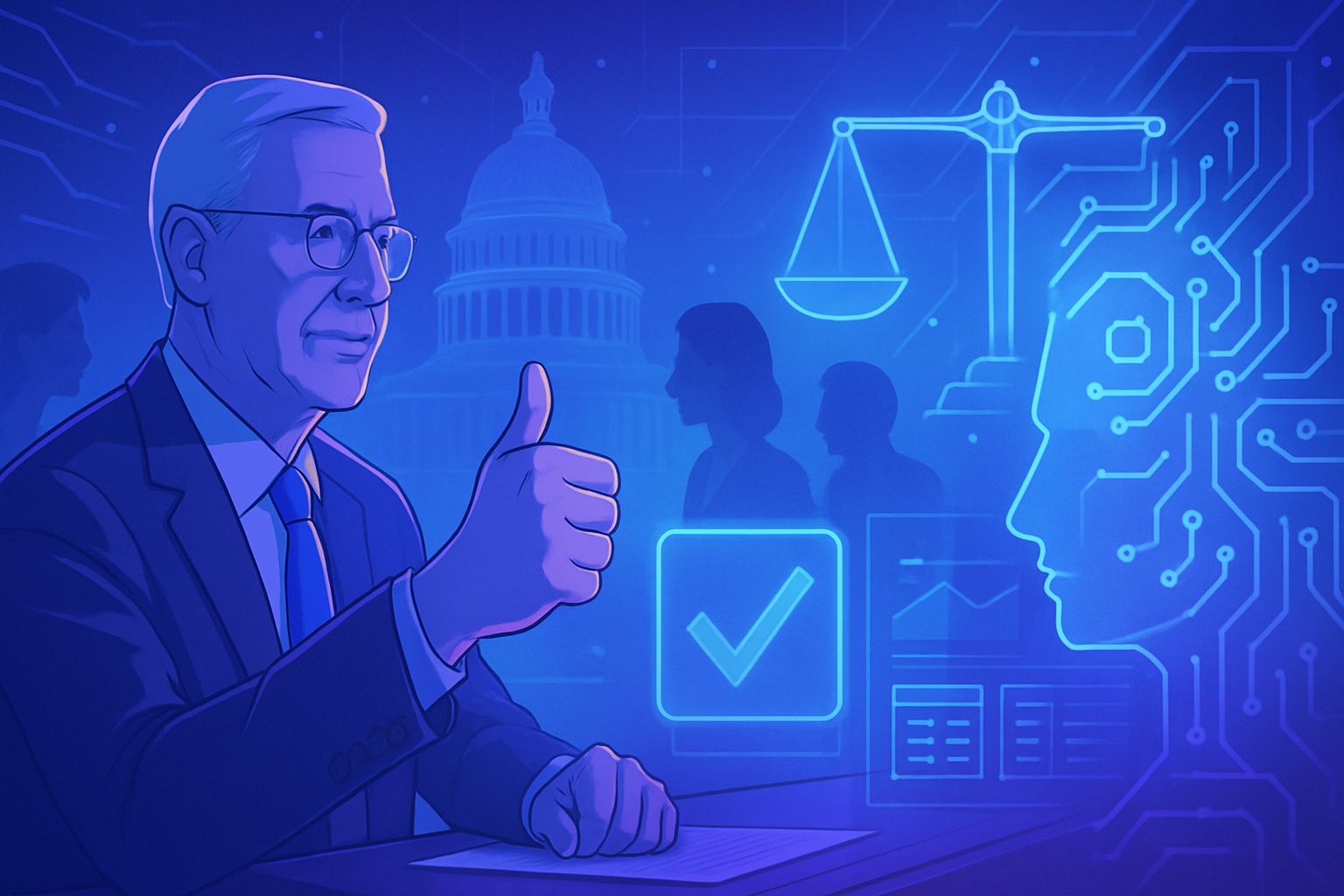The recent deliberations in the Senate demonstrate a clear intention to regulate artificial intelligence. Ethical and technological issues are revolutionizing the current legislative landscape. The green light given for a revised pause embodies a proactive response to the growing fears related to AI. The balance between innovation and the protection of human rights becomes paramount in this fractured debate. Policymakers are committed to developing relevant and responsible regulation in the face of a constantly changing world. A balanced approach is essential to avoid potential abuses while encouraging technological development.
Green light from the U.S. Senate
The United States Senate has recently approved a revised pause on the development of artificial intelligence (AI) in various sectors. This decision stems from growing concerns about the ethical and societal implications of the technology. Lawmakers intend to regulate the use of this technology before it becomes widely integrated into public and private infrastructures.
The motivations behind the pause
The rapid rise of AI capabilities has raised fears among legislators. The potential for AI to influence critical decisions, such as those affecting national security, civil rights, and privacy, necessitates thorough examination. Legislators emphasize the need to establish clear rules to prevent abuses and the pitfalls associated with a hasty adoption of these technologies.
Ethical and social issues
Experts point to the lack of a solid legal framework governing AI. This gap could lead to unethical use, creating disparities and reinforcing existing biases. The Senate insists on the importance of initiating a national dialogue regarding the ethical factors of AI. The ultimate goal is to promote responsible development while preserving innovation.
Reactions from the tech industry
Reactions from technology companies vary. Some support the need for a regulatory framework, arguing that clear rules would boost consumer trust. Others, however, express concerns about the impact of such a pause on innovation and American competitiveness in the global market. In an era where technological advancements are evolving at a breakneck pace, hoping for a balance between regulation and innovation remains delicate.
International examples
Countries such as the European Union have already initiated discussions on the regulation of AI technologies. The EU proposes frameworks aimed at ensuring transparency and accountability of AI systems used. This momentum could influence the American approach, prompting lawmakers to consider similar principles to apply domestically.
Towards better regulation?
The revised pause on AI could serve as a starting point for an in-depth dialogue among governments, businesses, and researchers. The need to collaborate is evident to ensure that AI systems benefit society as a whole. Establishing a comprehensive and suitable legal framework could pave the way for safer and more ethical use of these emerging technologies.
The road ahead
There are many challenges to overcome before implementing effective regulations. Evaluating the risks associated with AI requires robust studies and reliable data. The Senate, aware of the stakes, is committed to continuing its efforts to clarify the implications of artificial intelligence and its role in modern society. A hard task awaits decision-makers as they navigate this ever-evolving environment.
Frequently asked questions about the revised AI pause in the States
What is the revised AI pause in the States?
The revised AI pause in the States is a measure adopted by the Senate aimed at suspending the implementation of certain artificial intelligence technologies to assess their ethical and societal impacts.
Why did the Senate decide to give the green light to this pause?
The Senate recognized the need to protect citizens against potential failures of AI, particularly regarding privacy, security, and discrimination, thus prompting a thorough evaluation of existing systems.
What are the main objectives of this AI pause?
The main objectives include examining the risks associated with AI, establishing an appropriate regulatory framework, and engaging in a public dialogue about the ethical values necessary for the development of these technologies.
Does this mean that AI development will be completely halted during this period?
No, the pause specifically concerns certain applications deemed high-risk, while the development of other forms of AI will continue, provided they adhere to the new ethical standards that will be established.
How will this decision affect AI research?
Research will be encouraged to focus on more ethical and responsible approaches, thus allowing for the assessment of AI implications while maintaining meaningful advances in the field.
What are experts’ responses to this initiative?
Many experts welcome this initiative as a proactive step to anticipate ethical issues related to AI, while others worry about the delays it might cause in innovation.
What transparency measures will be implemented during this pause?
Regular reports will be published by the relevant government agencies detailing progress made in evaluating AI technologies and public consultations conducted.
Who will be involved in the review process of AI technologies during the pause?
Stakeholders will include lawmakers, researchers, ethics experts, representatives from the tech sector, and civil society organizations to ensure a diverse approach.
Could this pause on AI be extended?
Yes, if the results of the initial evaluation reveal significant risks, the Senate may decide to extend the pause until adequate measures are in place.






